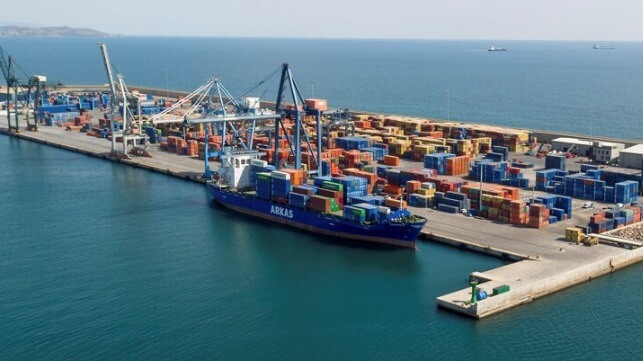Maersk’s APM Sells Spanish Terminal to AD Ports to Consolidate Operations

Spain’s Castellón terminal, operated by Maersk’s APM Terminals for the past eight years, is being sold to AD Ports in a transaction designed to consolidate the operation of terminals in Spain. APM views the operation located north of Valencia on the Mediterranean as a non-core asset while AD Ports already also has a presence in the port and will use the acquisition to consolidate its operations.
The companies reported that they have obtained all regulatory and stakeholder approvals and the change of ownership will take place effective immediately. Noatum Group’s Noatum Terminals acquired 100 percent of the ownership of the terminal in a deal that valued the facility at €100 million (enterprise value).
“This decision comes after careful analysis,” said Carlos Arias, Managing Director, Spanish Gateway Terminals at APM Terminals. “The Castellón terminal, acquired by APM Terminals in 2015 with the purchase of the TCB Group, is not a strategic asset for APM Terminals and A.P. Moller–Maersk, and therefore plays a limited role in achieving our strategic goals.”
Noatum Terminals has been managing a multipurpose terminal in Castellón since 2004 and views this deal as part of a strategy to consolidate its position in Spain. As it moves to grow its operations, the company has the backing of AD Ports, which acquired Noatum in July 2023.
The new combined operation in Castellón will have an annual capacity to handle 250,000 TEU representing around 70 percent of the container volume capacity of the Port of Castellón. In addition, the two terminals can handle two million tonnes of bulk cargo, as well as RoRo.

that matters most
Get the latest maritime news delivered to your inbox daily.
The acquisition allows Noatum Terminal Castellón to expand its operational capacity for bulk, general cargo, and container processing while maintaining APM Terminals' third-party services and agreements. They have also completed a long-term agreement with the stevedoring union for the operation of the facilities.
Noatum highlights that has been investing in upgrades at the port which has good rail connections as well as serving the Mediterranean, Middle East, and North Africa. They have modernized the operation while maintaining existing equipment and facilities. The acquisition is designed to enhance its position as a leading multipurpose port operator in the Western Mediterranean.
